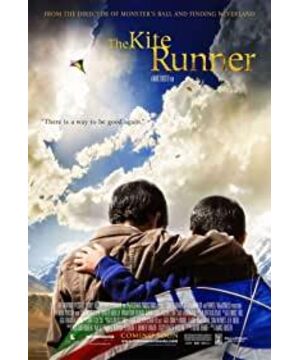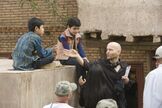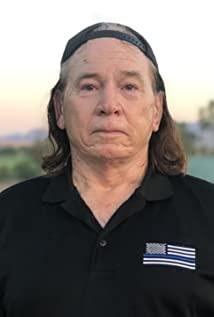The author's experience of daily life in Afghanistan is superficial, or he is deliberately avoiding something. In this country with a long tradition of beliefs, even if there is no Taliban (the so-called theological regime in the movie), religion is still deeply rooted in every corner of life. However, in the movie, the childhood Amir’s family does not seem to live in Afghanistan, but the United States today—birthday prom, suit and tie, Ford...All the good memories of childhood come from the Western lifestyle.
This is not the life memory and experience of most Afghan people. Even before the Soviet invasion in 1978, most people in Afghanistan still lived in a strong Islamic tradition. And this is almost absent in Amir’s childhood memory. What does the author need to avoid? Or, if there is no evasion, I can only say that the author’s childhood experience is a "sky garden" that ordinary Afghans can never reach. What is the significance of this story?
The movie portrays his father as an upright, courageous and caring person who spends money to build an orphanage and dares to protect his compatriots from armed invaders. However, he also used his mouth to attack the mullahs who persuaded people to stop drinking. They were a group of people who didn't understand what was said in the scriptures, but only moved the rosary. The author's design that ingeniously contrasts the brave, caring and devout believers makes me wonder what the author wants to tell readers behind writing this touching story.
As we all know, the Taliban regime was not successful. A group of young religious students really underestimate the complexity of governance. They simply implemented the religious precepts they obeyed to all the people, and handled the relationship between secularity and belief in a simple or even rude way. But they are not a group of inhuman monsters as described in the movie. Everyone has his own family, friends and childhood. When describing his own childhood, the author has ever thought about the childhood of the armed "theological scholar" who was pushed to the opposite side by him. They are just a group of young people who believe that the unity and dignity of the country can be restored by strictly enforcing religious precepts. The author does not have to pile up all the ugly things on them in order to achieve his goals.
In the movie, Arthur, who bullied Amir and Hassan as a child, was written as the leader of the Taliban today, and he was eventually shot blind in one eye. I wonder why the author cannot redeem others when he is redeeming himself? Back then, Asef was just a naive teenager. He bullied Amir and Hassan, but it was a common thing among children. Why did he end up becoming a perverted theology bachelor of prostitutes?
In fact, it was the period of the Taliban in power that purified the social environment of Afghanistan. The Taliban publicly executed gangsters and sodomites in accordance with Islamic law, which greatly curbed this ugly phenomenon that has prevailed in Central Asia since ancient times. The Taliban banned the cultivation of drugs, which made the world's drug trade temporarily tight until it was overthrown by the United States, and Afghanistan once again became the world's largest base of drug raw materials. The Taliban did ban people from flying kites, but that was not because there was something wrong with kite flying itself, but because some people used kite fighting for gambling, which caused many families to be destroyed. Why doesn't the author explain these backgrounds?
The Hazaras are considered to be descendants of the Mongolian army that entered Afghanistan in ancient times. They have obvious East Asian or Chinese characteristics, but they have converted to Islam for centuries. Living customs are very similar to those of many ethnic groups in Afghanistan. The chaos in Afghanistan after the Soviets withdrew to a large extent was a war between warlords in order to defend their own interests. Rather than the contradiction between ethnic groups as the author thinks. The author deliberately highlights the contradiction between the Hazaras and the Pashtuns who make up the majority of Afghanistan, just to help the West shirk responsibility for the increasingly complicated chaos in Afghanistan due to their intervention.
While shaping the opposite, the author is also deliberately beautifying his own mistakes. Father and servant Ali’s wife commit adultery. With Hassan, he makes his so-called best playmate cuckold, but he doesn’t need to be responsible for it, and he can still stand in the story with integrity and carelessness. Amir's wife was young and ignorant, eloped with others, and lived together unmarried, but she could still become a perfect "loved lover". What does the author want to tell the audience? Is the person who starts chaos and ends up with humanity? Is the caring one? What kind of honor should a person who is loyal to his family and wife get?
After watching the movie, I understand the ingenious output of a kind of values. The author equates writing novels with making stories through the mouth of the general's father-in-law, who has views of ethnic discrimination. It seems that he wants to justify himself. But the weaving of this story is too "exciting"-the invasion of the Communist Soviet Union ended the author's beautiful childhood, and the theologians who followed the inherent Muslim beliefs caused today's suffering. Only in the United States, there are all the good things-a gentle wife who understands Amir, a decent and dignified life, and the freedom to fly a kite on the beach. The author secretly told us Fukuyama's view that the American system is the last and most perfect system for mankind. Under the warmth of friendship, family love, and human salvation, Western civilization has already stood tall on the summit of civilization, looking down on other "barbaric civilizations", it is so spectacular.
View more about The Kite Runner reviews











